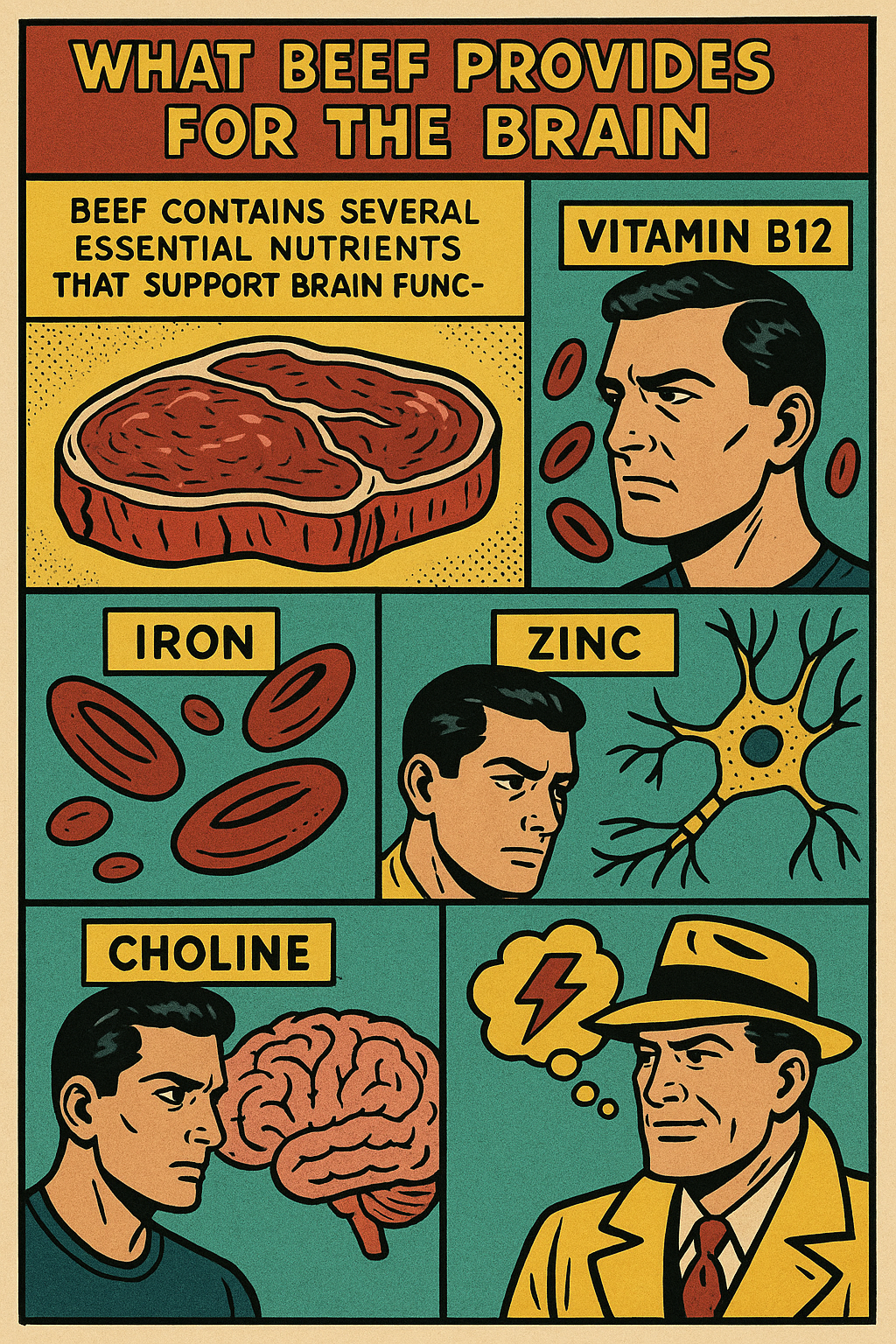What Beef Gives is what Brains Need
Beef contains several essential nutrients that support brain function — none of which are carbohydrates. Key brain-supporting compounds in beef include:
Key Nutrients in Beef for Brain Health (Non-Carbohydrate):
1. Vitamin B12 (Cobalamin)
- Function: Essential for myelin sheath integrity, neurotransmitter synthesis, and preventing brain atrophy.
- Deficiency effects: Memory loss, cognitive decline, depression, and even psychosis.
2. Iron (Heme Iron)
- Function: Supports oxygen transport to the brain and is vital for neurotransmitter function (dopamine, serotonin).
- Beef advantage: Heme iron (from animals) is significantly more bioavailable than non-heme (from plants).
3. Zinc
- Function: Critical for synaptic transmission, neurogenesis, and protection against oxidative stress.
- Deficiency effects: Mood disorders, impaired learning, and memory dysfunction.
4. Choline
- Function: Precursor to acetylcholine, a key neurotransmitter for memory, learning, and muscle control.
- Note: Liver has much more choline, but beef muscle still contributes.
5. Creatine
- Function: Fuels brain energy metabolism; improves memory and cognitive performance, especially under stress or fatigue.
- Unique to meat: Not available in significant amounts in plants.
6. Tyrosine (Amino Acid)
- Function: Precursor to dopamine, norepinephrine, and epinephrine — key mood and focus neurotransmitters.
7. Saturated Fats & Cholesterol
- Function: Vital for neuronal membrane structure and function; cholesterol is essential for synapse formation and steroid hormone production.
- Brain fact: The brain is about 60% fat by dry weight — much of it requires saturated fat and cholesterol.
8. Omega-3 Fatty Acids (esp. DHA, small amounts)
- Function: Structural component of brain cell membranes; supports neuroplasticity and cognitive function.
- Note: Beef from grass-fed animals contains more omega-3s than grain-fed.
Summary:
Beef nourishes the brain by supplying vital nutrients for neurotransmitter synthesis, energy metabolism, myelination, and structural maintenance — especially B12, iron, zinc, choline, and creatine. These cannot be replaced by carbohydrates and are either unavailable or poorly absorbed from plant sources.

Visited 12 times, 1 visit(s) today